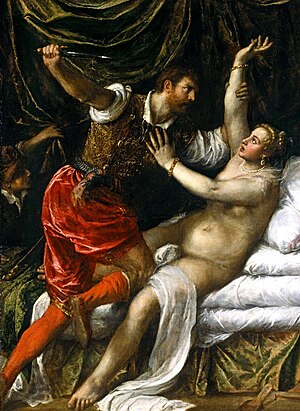 Image via Wikipedia
Image via Wikipedia
Later, she told a third party about this. The woman said, "why did you not want your picture taken?" She said, "because when I look at pictures of myself, they don't look like I feel, so I don't like to see them. They make me feel bad about myself. So I don't like it when people take my picture."
The woman turned to my son-in-law and asked, "Why did you insist on taking her picture when she was telling you not to?" He said, "Well, I was teasing her . . . it's kind of like when the little boy pulls the little girl's pigtail. The girl says she doesn't like it, but it makes her know that he likes her."
The woman said, "Women do not like to have their hair pulled. And that piece of thinking that you just described is the reason that we are living in a culture where rape and abuse happen to women. When a woman says "No," it means "No."
I thought about this for a long time after my daughter told me about it. These are the things I feel about it.
1) I hate the fact that my daughter feels the way she does about having pictures taken. I completely understand it, because I feel much the same way. But I hate it anyway. She is a beautiful young woman and I wish she recognized that in the photographs she sees of herself.
2) Her husband is one of the sweetest young men I have had the pleasure to know. He was raised with a whole bunch of sisters, so you would think he has a better understanding of women than most men have. And yet he still believes that teasing is fun. Has teasing ever been fun? If you are the teaser, it's like being a bully and that can't be fun. And if you are the teased, you are the victim and that's not fun.
3) When and why did boys learn that when girls say "no" it means "yes?" And why don't men realize that if they learned that somewhere along the way, it was erroneous? When these men were little boys and their mother said "no," didn't they recognize that she meant "no?" If a man is working for a woman and she says "no," he knows that it means "no." So can men accept a serious "no" from a woman who has more power than them, but not from women who don't have that kind of power?

![Reblog this post [with Zemanta]](http://img.zemanta.com/reblog_e.png?x-id=087fc899-2b48-41d6-8a11-3f6ecda3dd4e)
No comments:
Post a Comment